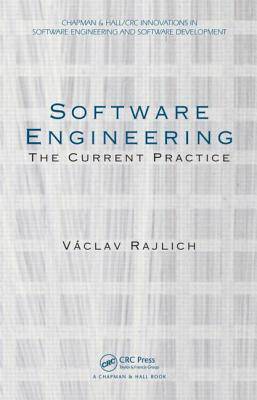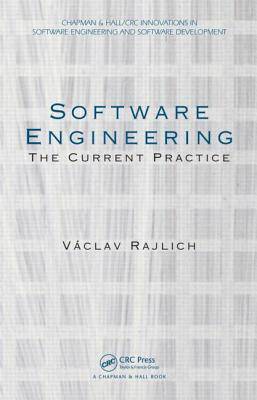
- Afhalen na 1 uur in een winkel met voorraad
- Gratis thuislevering in België vanaf € 30
- Ruim aanbod met 7 miljoen producten
- Afhalen na 1 uur in een winkel met voorraad
- Gratis thuislevering in België vanaf € 30
- Ruim aanbod met 7 miljoen producten
Omschrijving
Software Engineering: The Current Practice teaches students basic software engineering skills and helps practitioners refresh their knowledge and explore recent developments in the field, including software changes and iterative processes of software development.
After a historical overview and an introduction to software technology and models, the book discusses the software change and its phases, including concept location, impact analysis, refactoring, actualization, and verification. It then covers the most common iterative processes: agile, directed, and centralized processes. The text also journeys through the software life span from the initial development of software from scratch to the final stages that lead toward software closedown.
For ProfessionalsThe book gives programmers and software managers a unified view of the contemporary practice of software engineering. It shows how various developments fit together and fit into the contemporary software engineering mosaic. The knowledge gained from the book allows practitioners to evaluate and improve the software engineering processes in their projects.
For InstructorsInstructors have several options for using this classroom-tested material. Designed to be run in conjunction with the lectures, ideas for student projects include open source programs that use Java or C++ and range in size from 50 to 500 thousand lines of code. These projects emphasize the role of developers in a classroom-tailored version of the directed iterative process (DIP).
For StudentsStudents gain a real understanding of software engineering processes through the lectures and projects. They acquire hands-on experience with software of the size and quality comparable to that of industrial software. As is the case in the industry, students work in teams but have individual assignments and accountability.
Specificaties
Betrokkenen
- Auteur(s):
- Uitgeverij:
Inhoud
- Aantal bladzijden:
- 320
- Taal:
- Engels
- Reeks:
Eigenschappen
- Productcode (EAN):
- 9781439841228
- Verschijningsdatum:
- 17/11/2011
- Uitvoering:
- Hardcover
- Formaat:
- Genaaid
- Afmetingen:
- 157 mm x 239 mm
- Gewicht:
- 576 g

Alleen bij Standaard Boekhandel
Beoordelingen
We publiceren alleen reviews die voldoen aan de voorwaarden voor reviews. Bekijk onze voorwaarden voor reviews.











